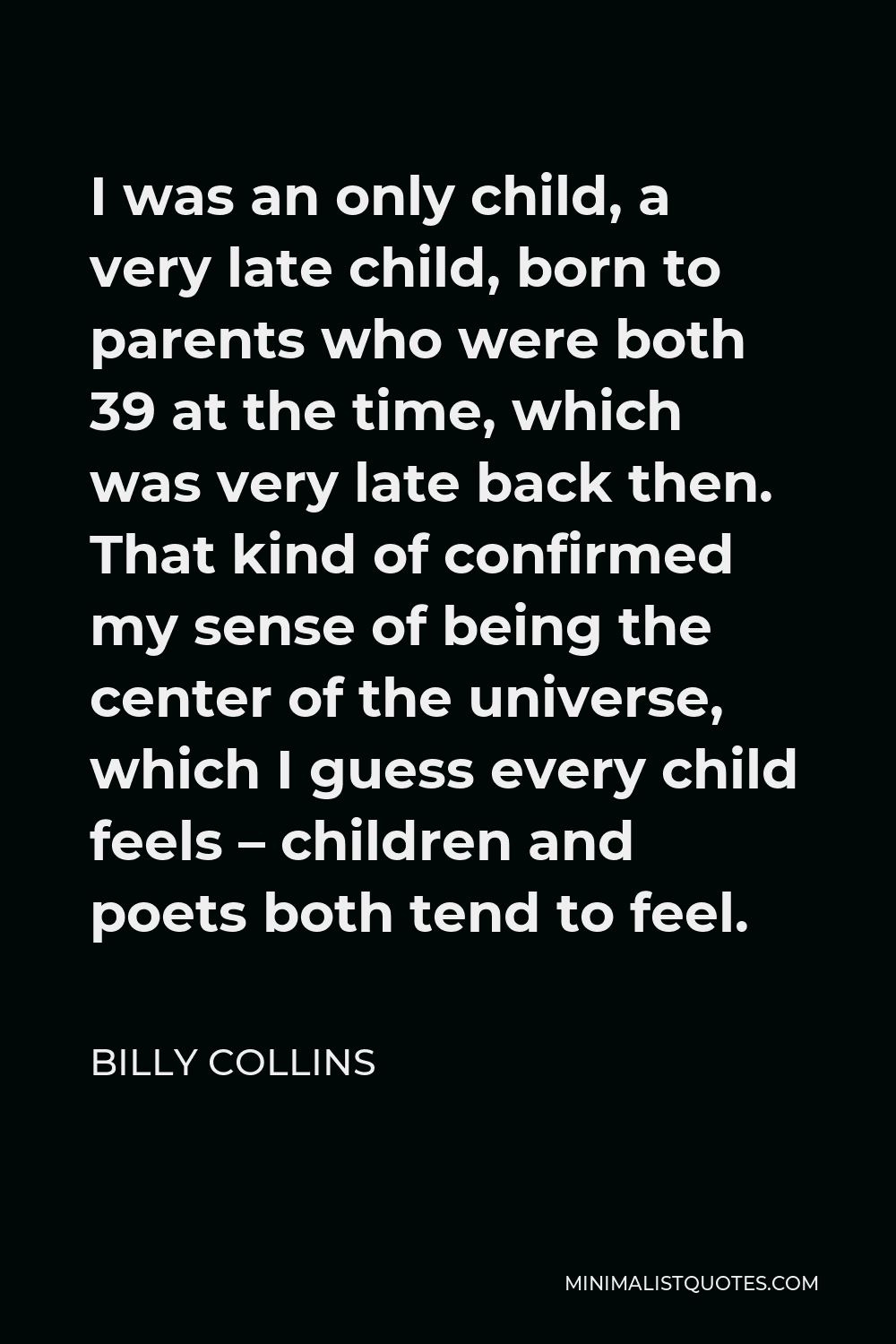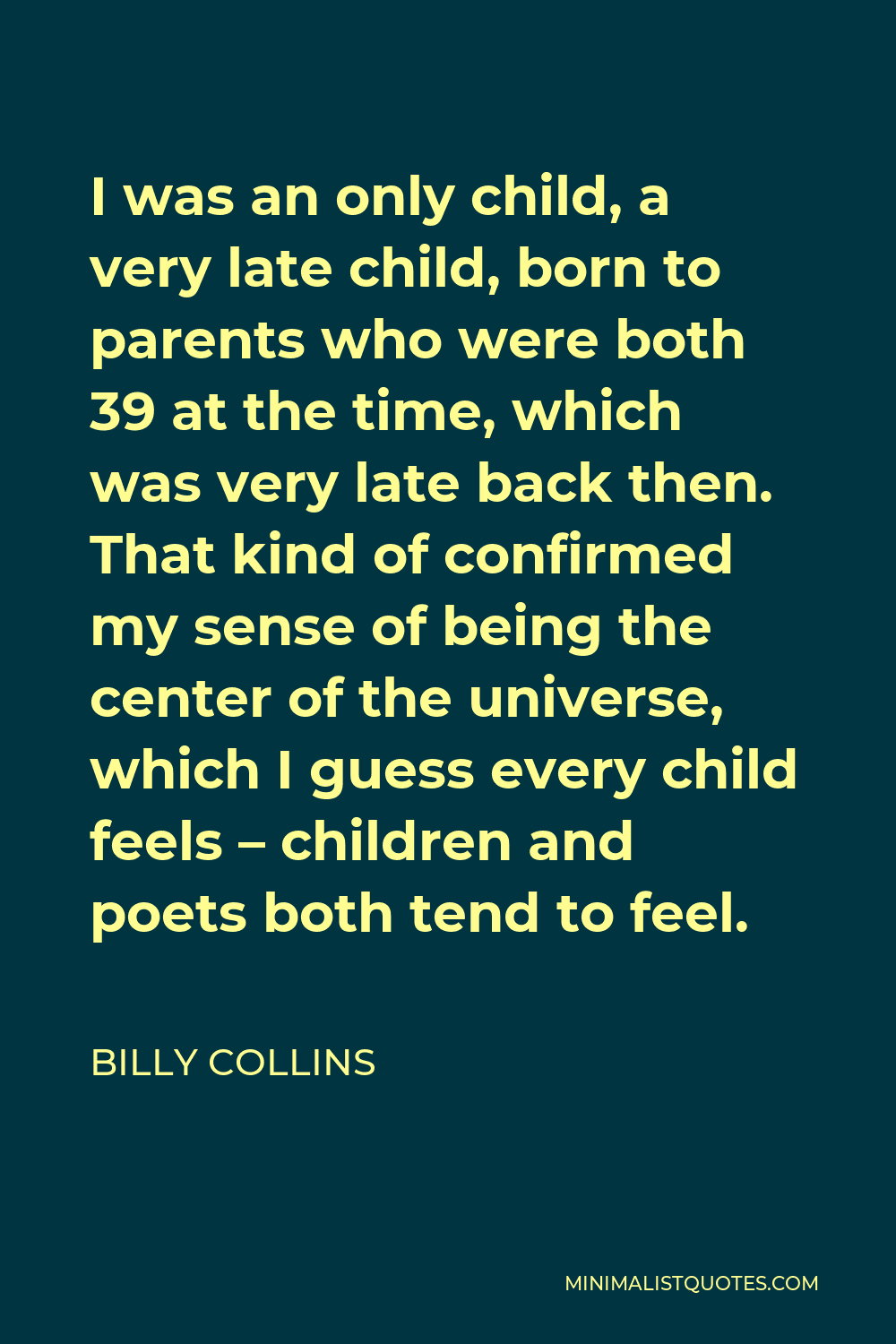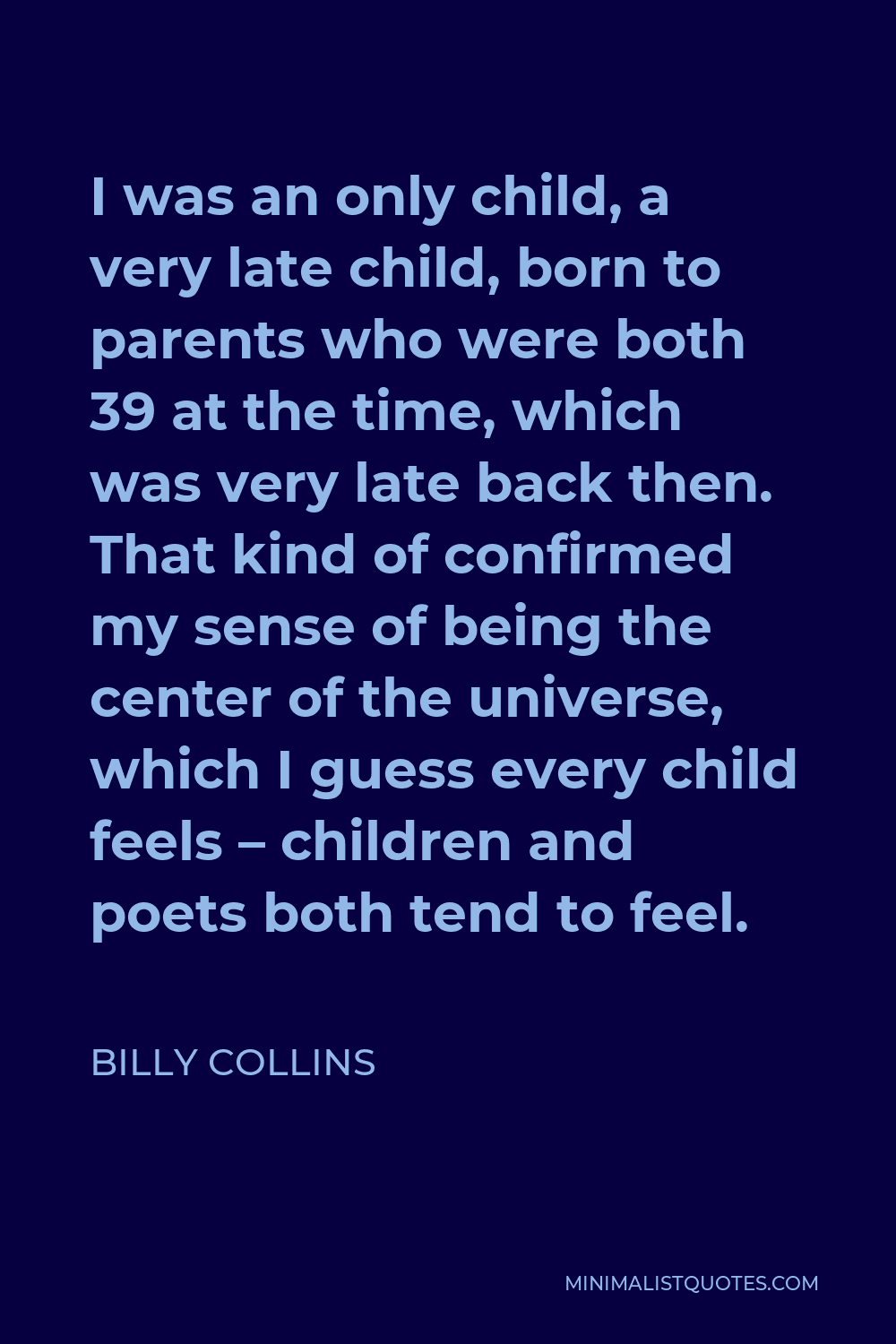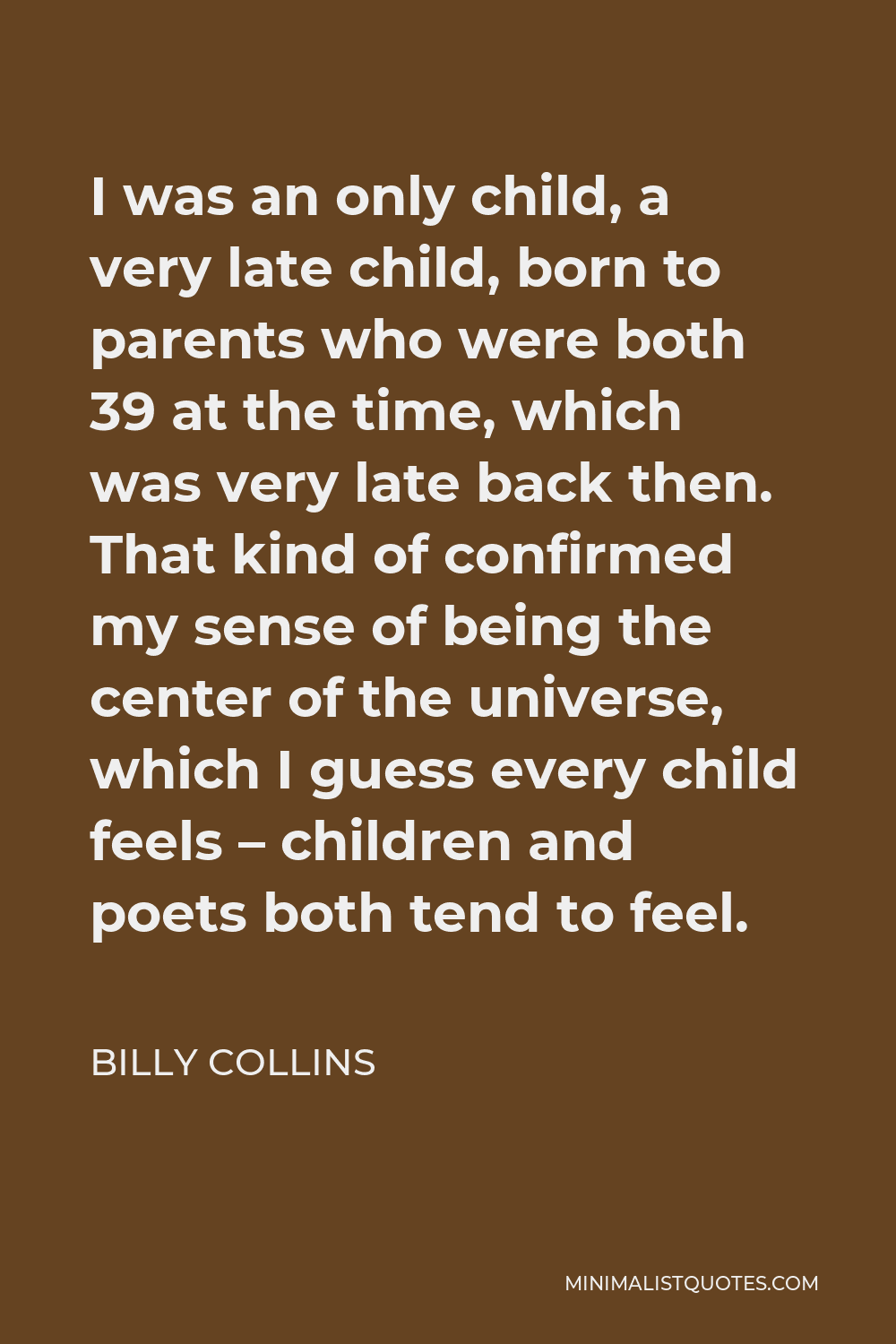I was a pretty happy kid, I had to fake it. I had to get into this miserable character before I wrote poems.
BILLY COLLINSI was an only child, a very late child, born to parents who were both 39 at the time, which was very late back then. That kind of confirmed my sense of being the center of the universe, which I guess every child feels – children and poets both tend to feel.
More Billy Collins Quotes
-





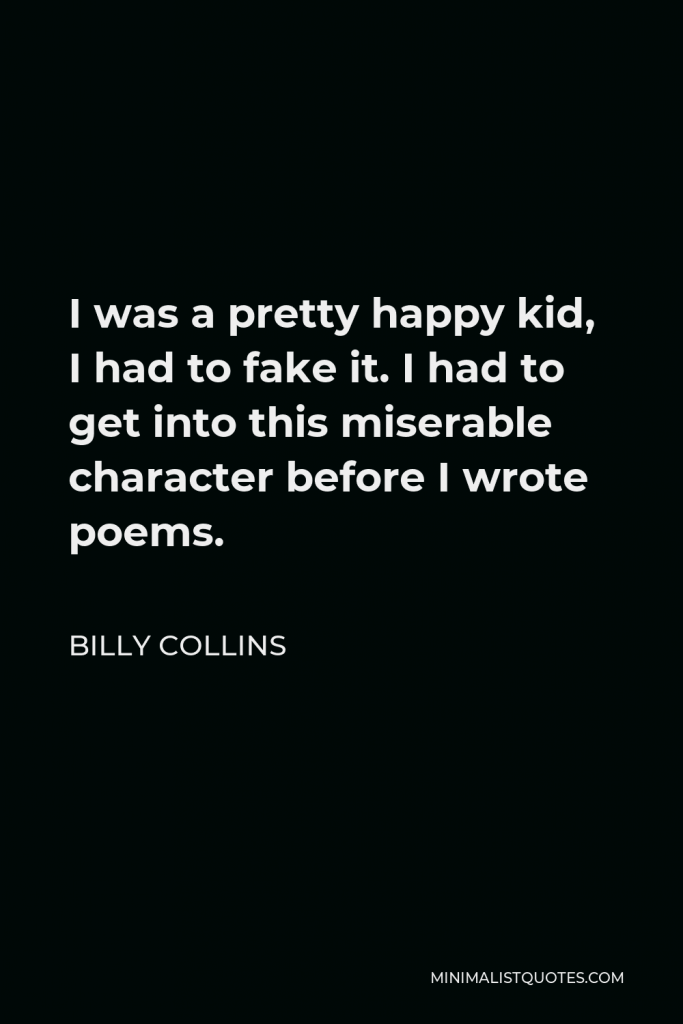

-





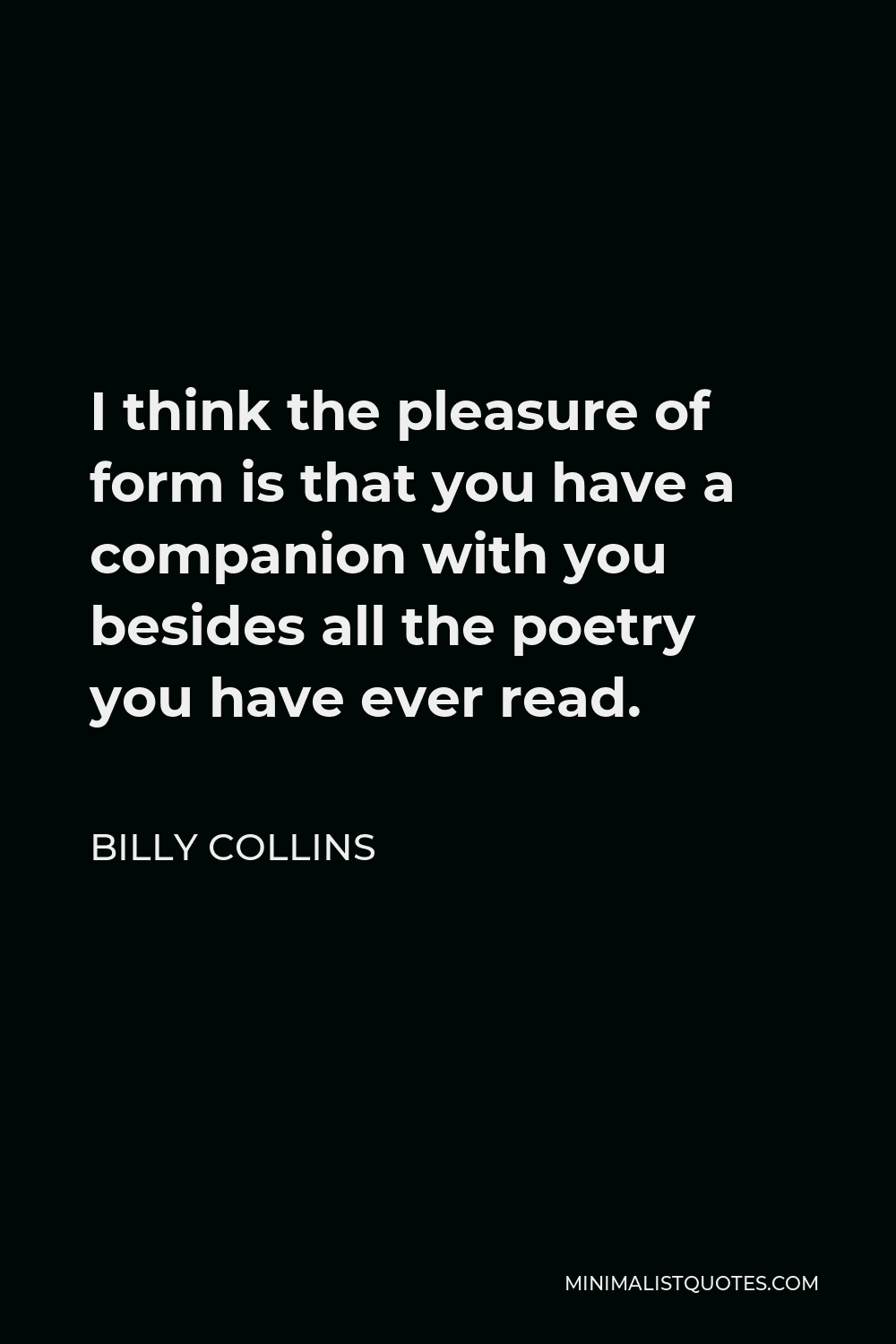
I think the pleasure of form is that you have a companion with you besides all the poetry you have ever read.
BILLY COLLINS -





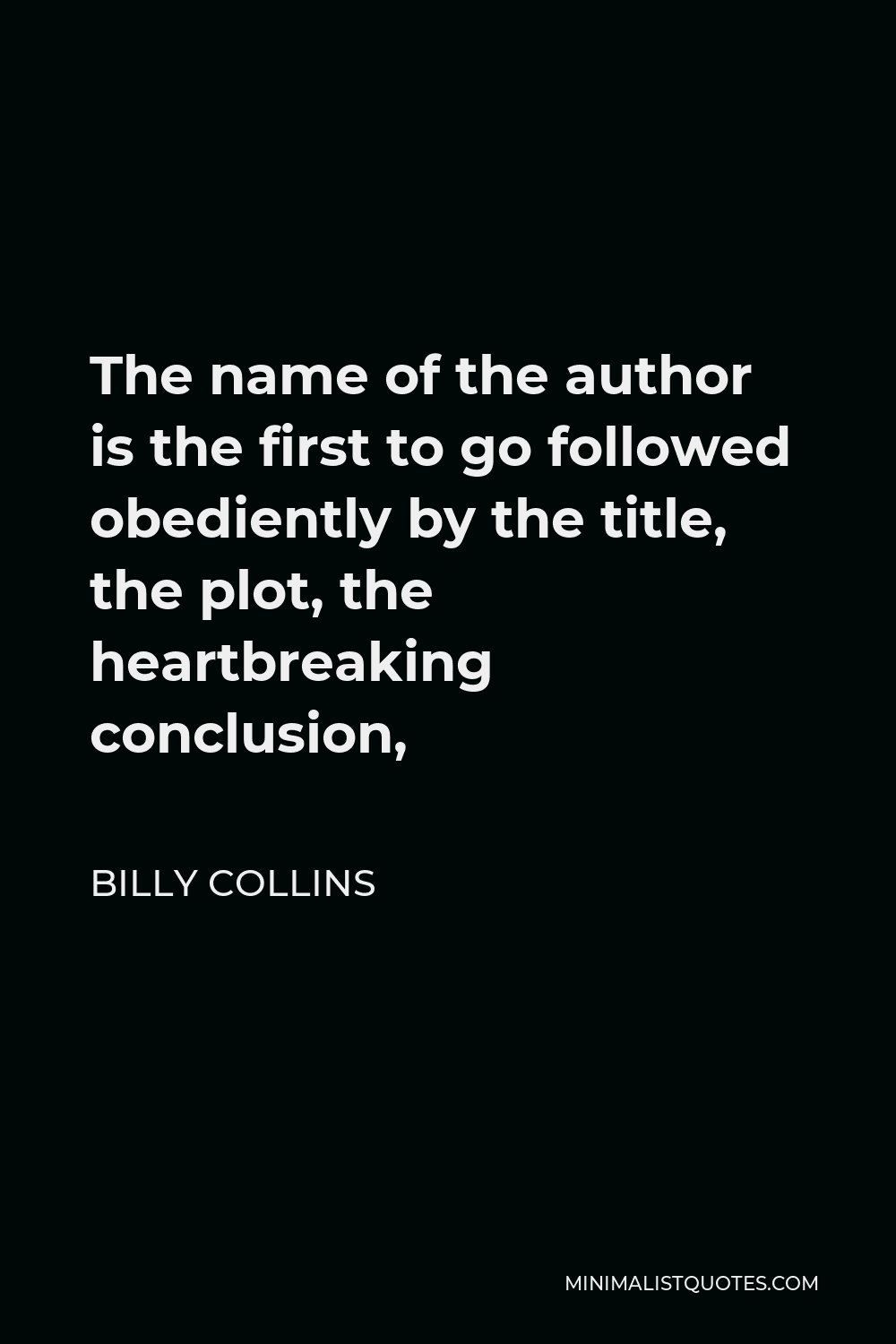
The name of the author is the first to go followed obediently by the title, the plot, the heartbreaking conclusion,
BILLY COLLINS -





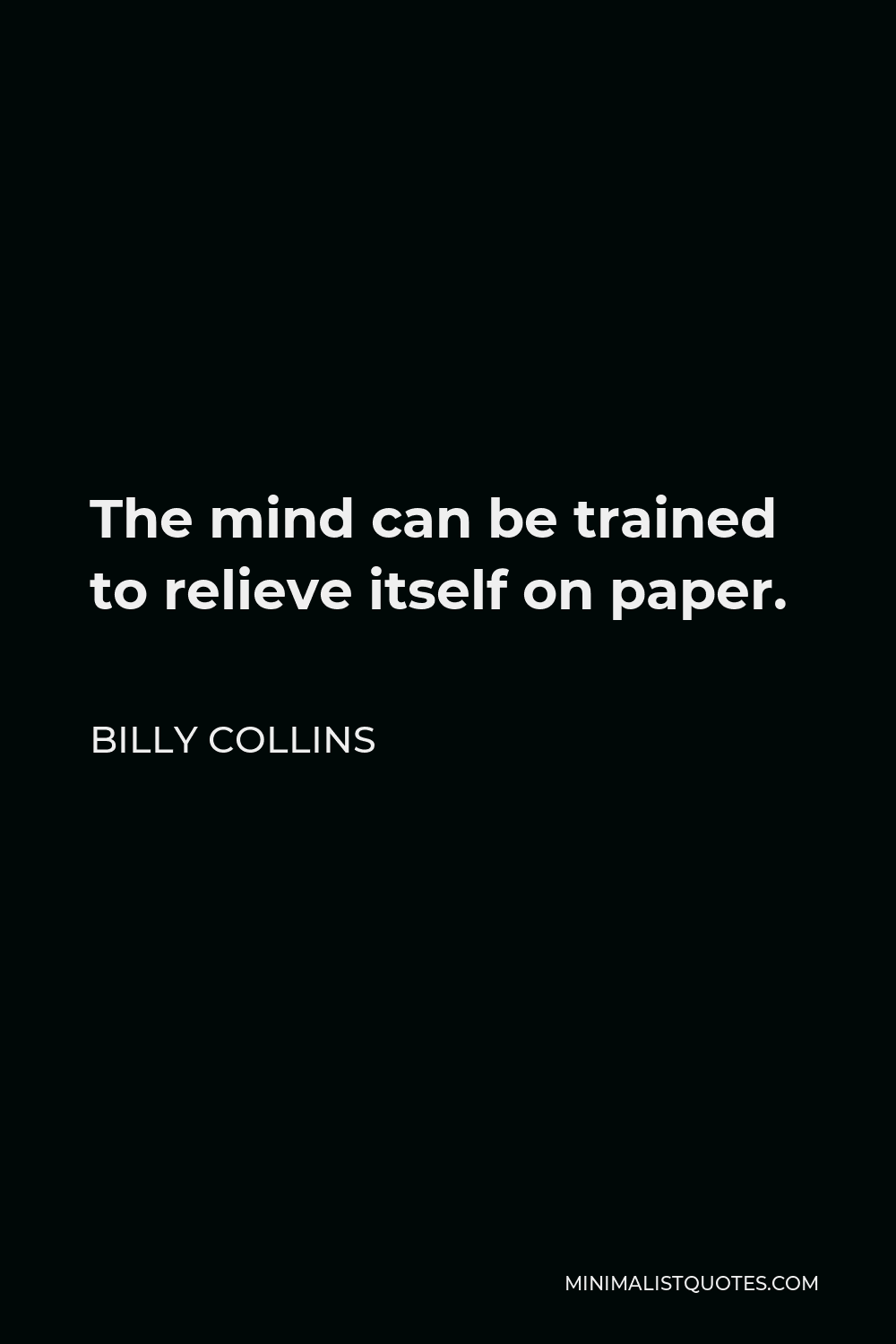
The mind can be trained to relieve itself on paper.
BILLY COLLINS -





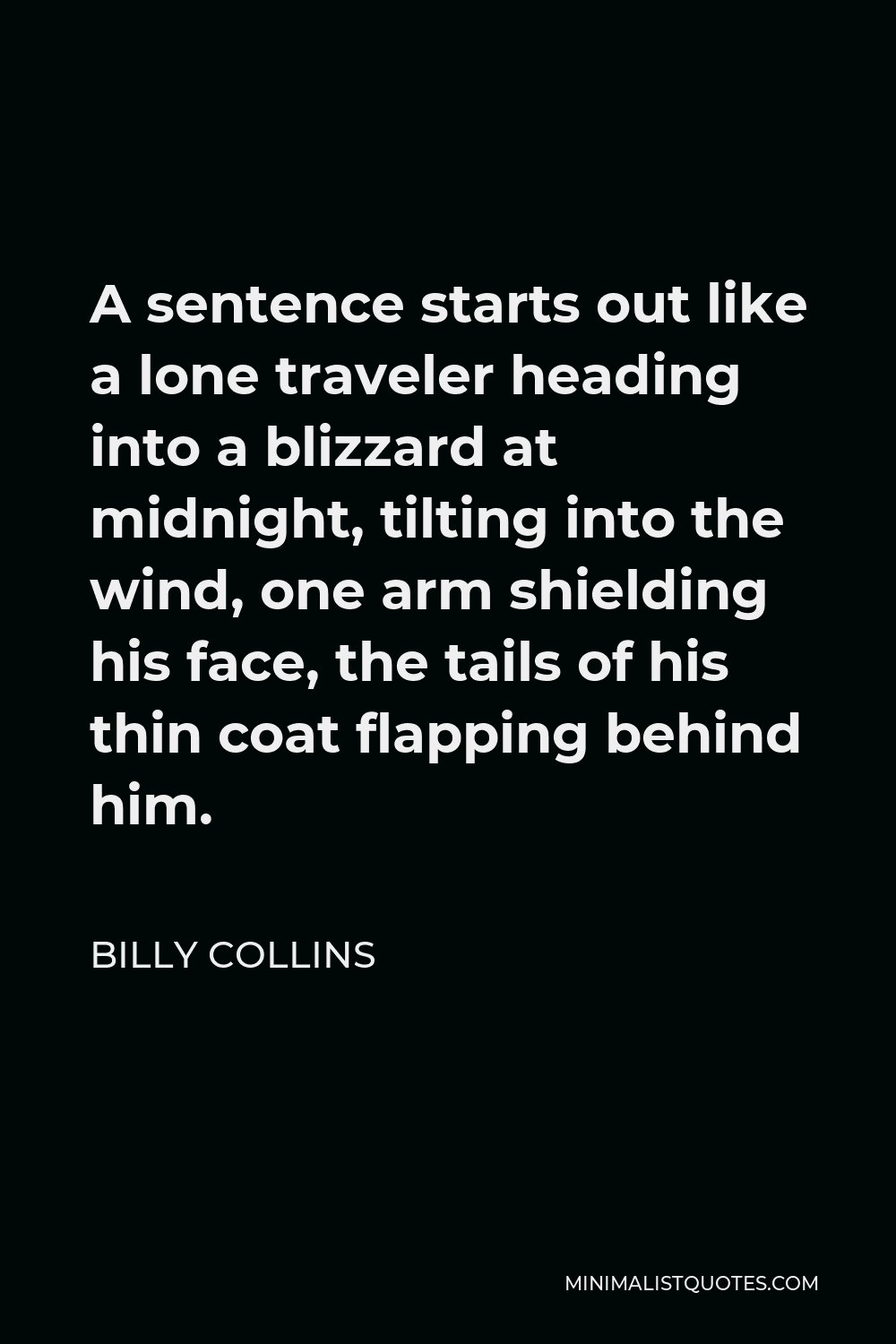
A sentence starts out like a lone traveler heading into a blizzard at midnight, tilting into the wind, one arm shielding his face, the tails of his thin coat flapping behind him.
BILLY COLLINS -





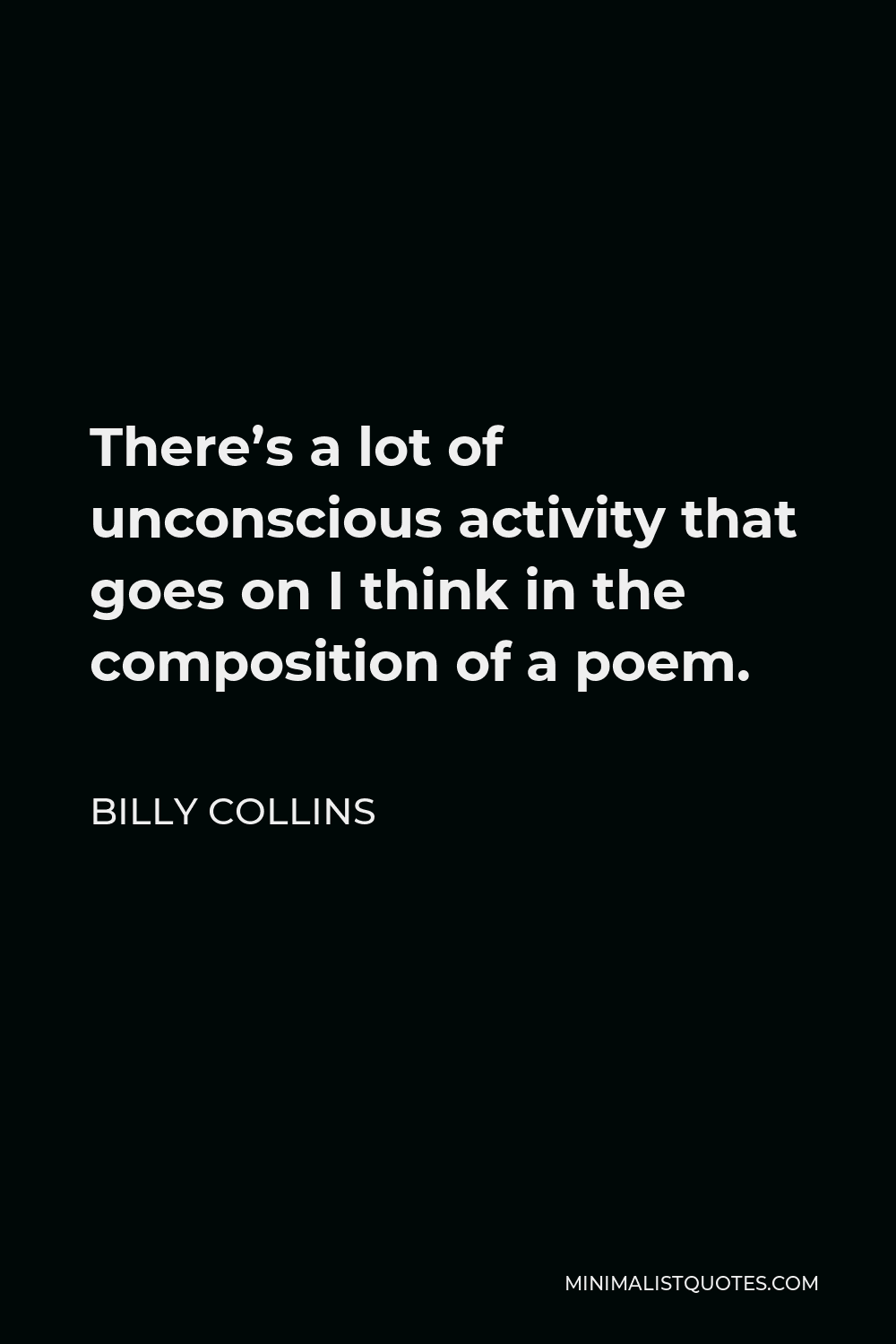
There’s a lot of unconscious activity that goes on I think in the composition of a poem.
BILLY COLLINS -





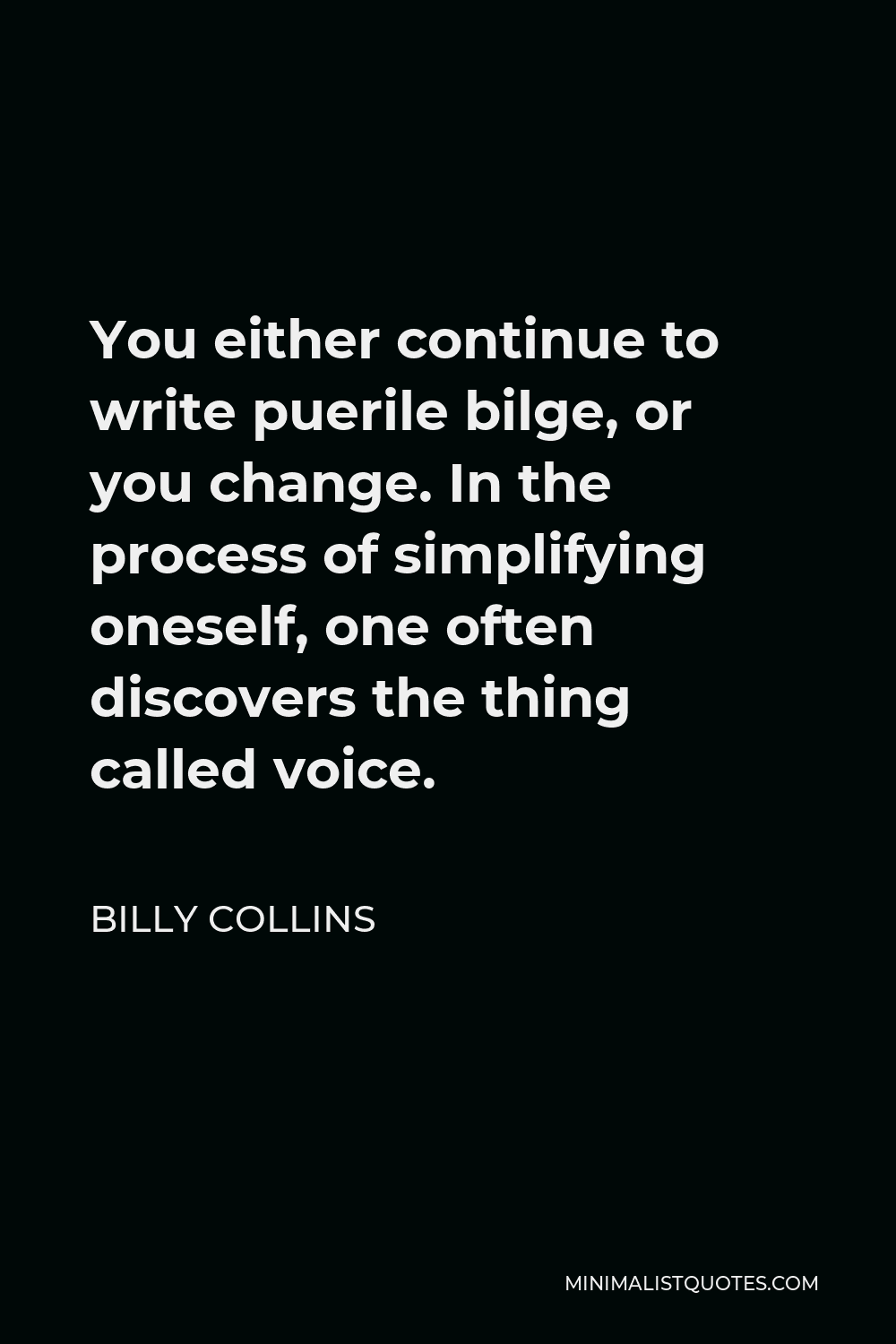
You either continue to write puerile bilge, or you change. In the process of simplifying oneself, one often discovers the thing called voice.
BILLY COLLINS -





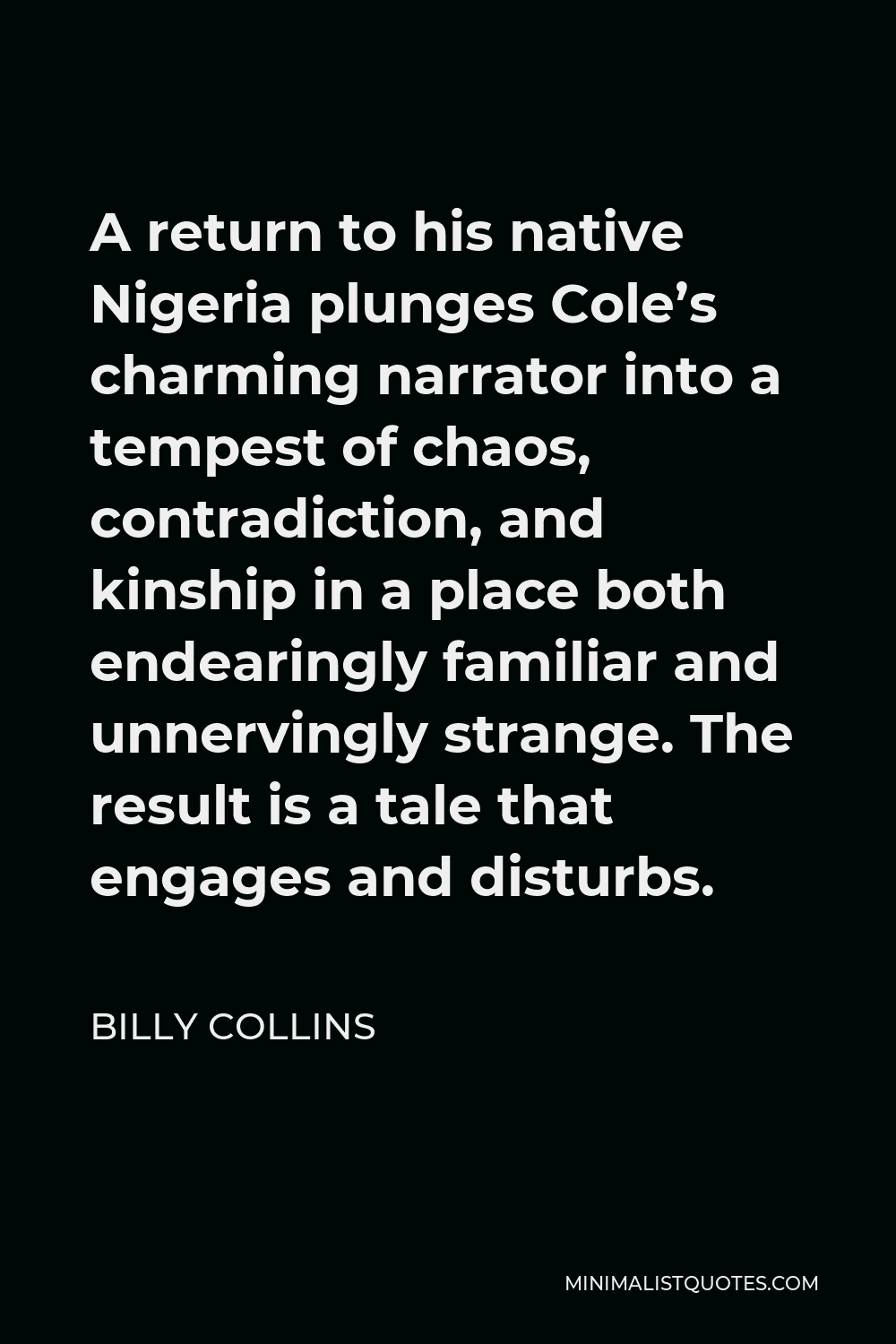
A return to his native Nigeria plunges Cole’s charming narrator into a tempest of chaos, contradiction, and kinship in a place both endearingly familiar and unnervingly strange. The result is a tale that engages and disturbs.
BILLY COLLINS -





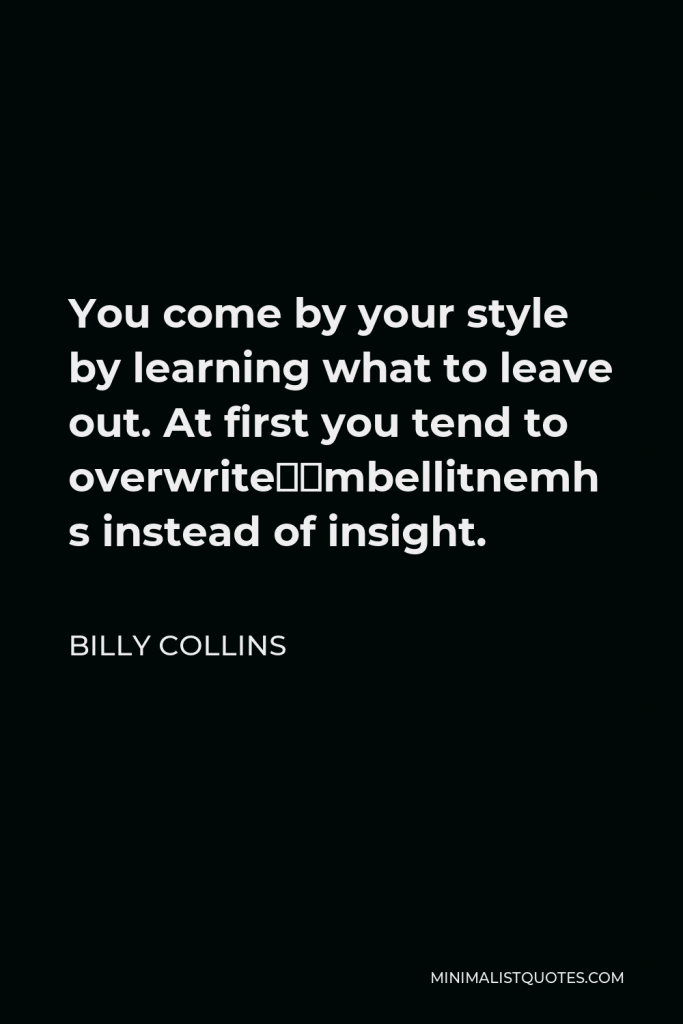

You come by your style by learning what to leave out. At first you tend to overwrite—embellishment instead of insight.
BILLY COLLINS -





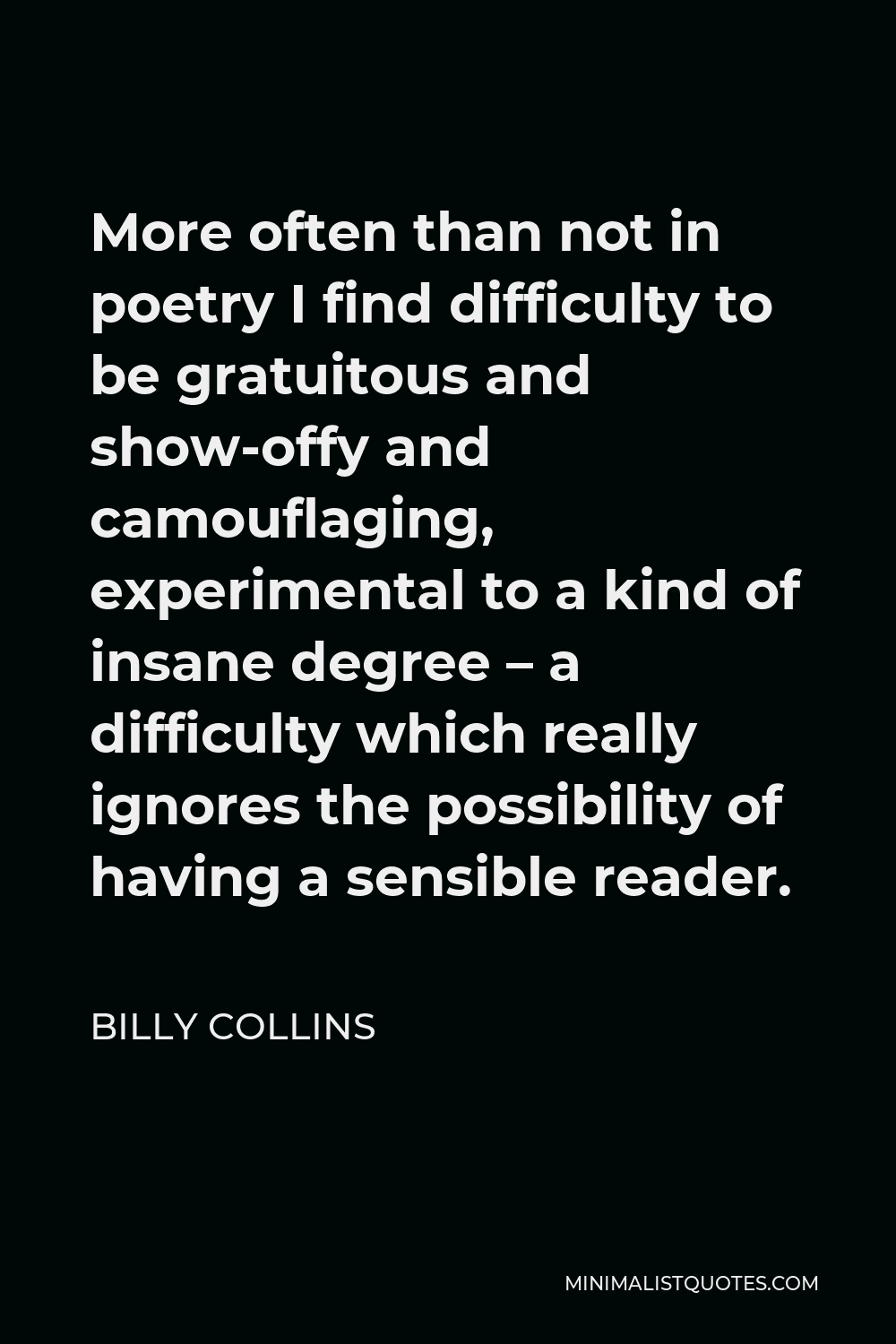
More often than not in poetry I find difficulty to be gratuitous and show-offy and camouflaging, experimental to a kind of insane degree – a difficulty which really ignores the possibility of having a sensible reader.
BILLY COLLINS -





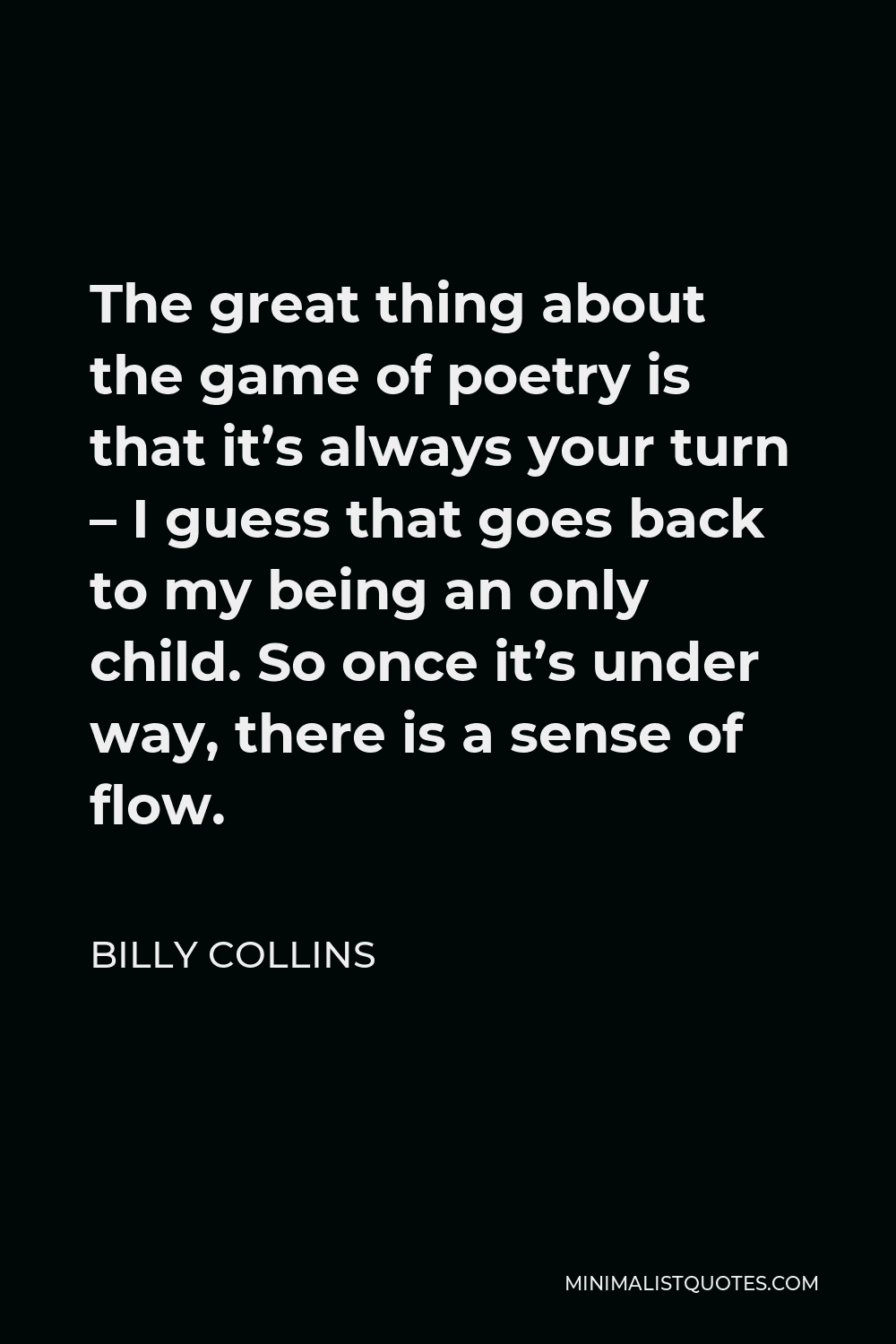
The great thing about the game of poetry is that it’s always your turn – I guess that goes back to my being an only child. So once it’s under way, there is a sense of flow.
BILLY COLLINS -





![Billy Collins Quote - I felt at some point that I had nothing to lose, and [laughs] maybe I was wrong. I think, you know, there’s always these little autobiographical secrets behind things. I think I was really attacking my earlier self, and this kind of pretentious figure.](https://minimalistquotes.com/images/i-felt-at-some-point-that-i-had-nothing-to-lose-an.jpg)
I felt at some point that I had nothing to lose, and [laughs] maybe I was wrong. I think, you know, there’s always these little autobiographical secrets behind things. I think I was really attacking my earlier self, and this kind of pretentious figure.
BILLY COLLINS -





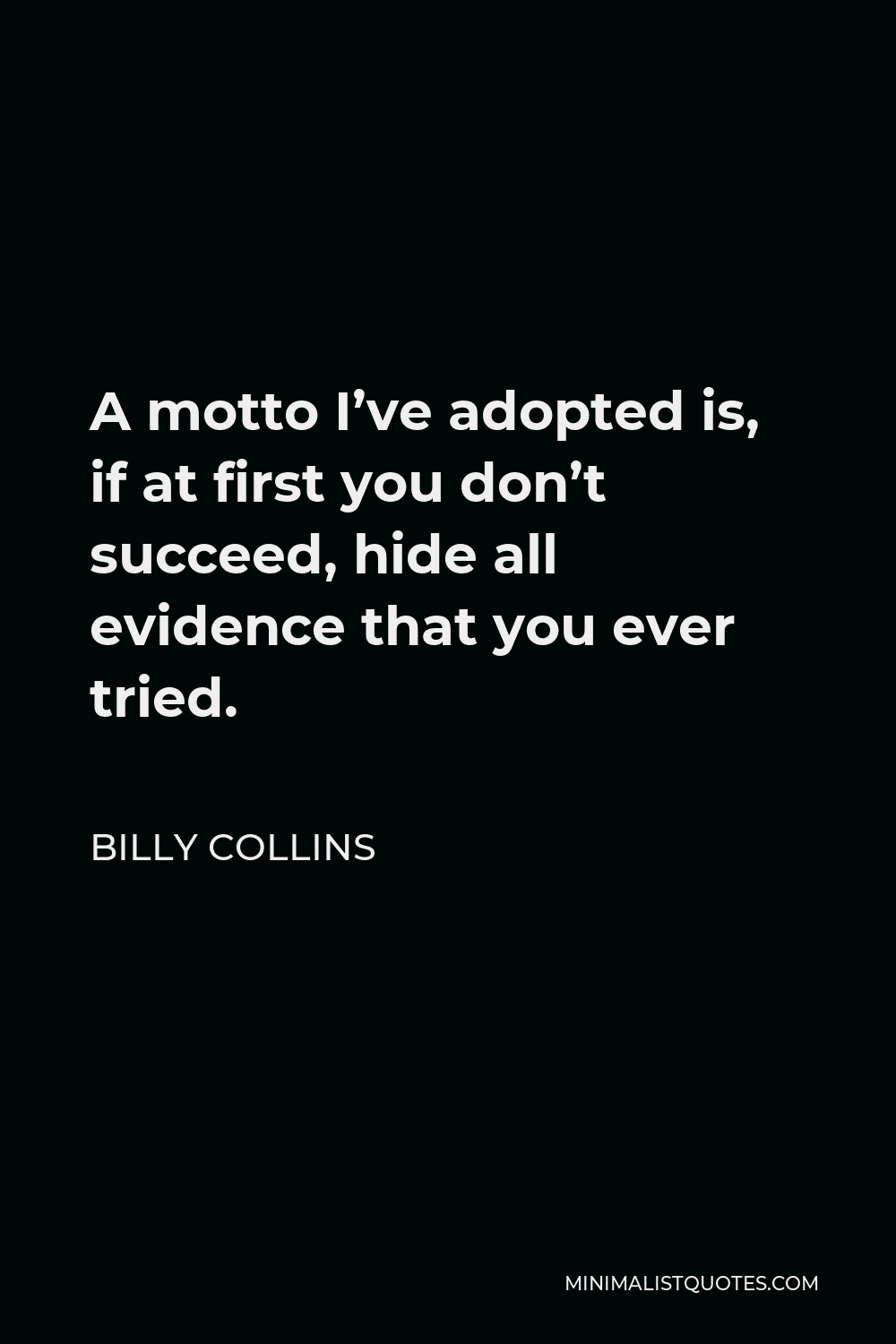
A motto I’ve adopted is, if at first you don’t succeed, hide all evidence that you ever tried.
BILLY COLLINS -





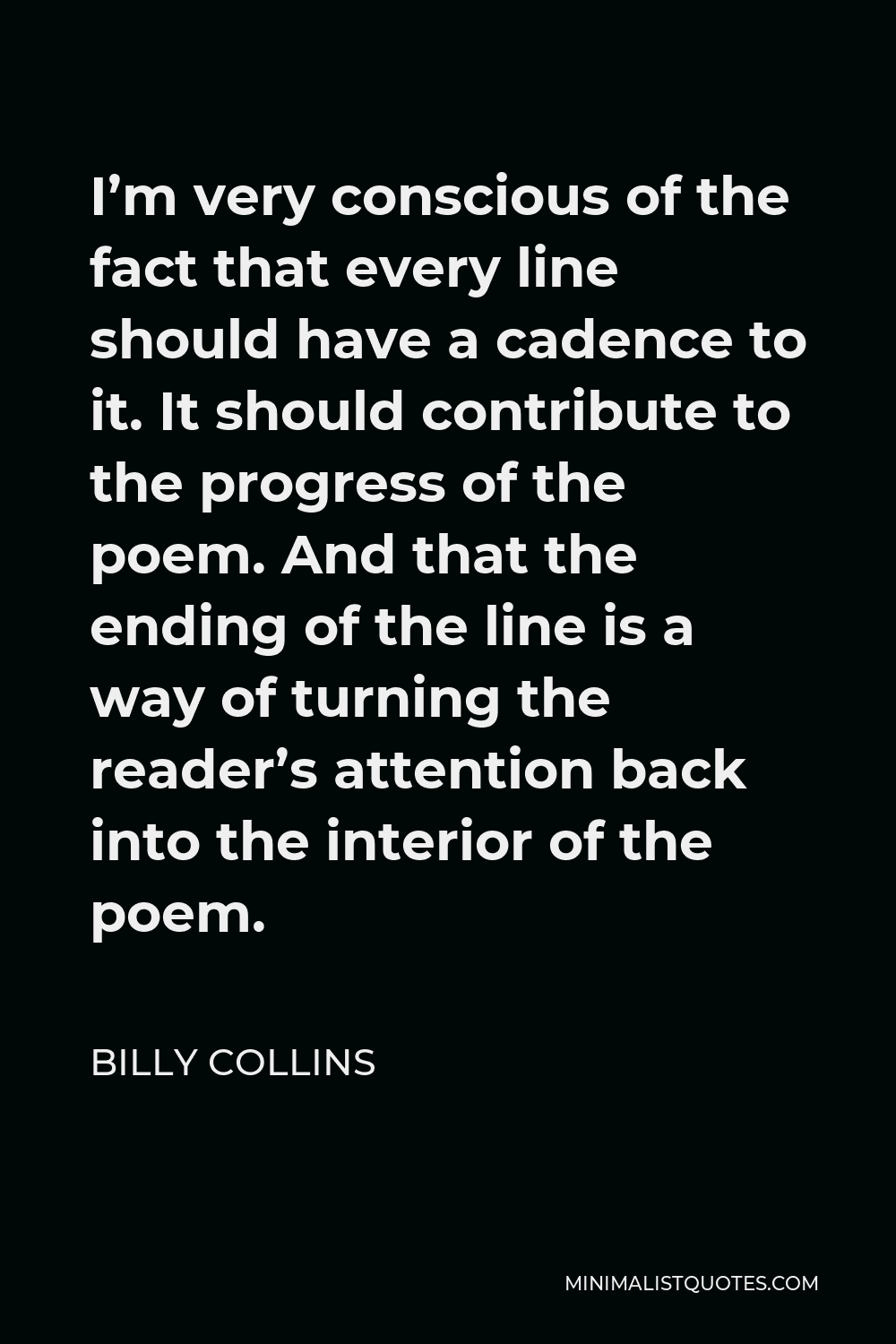
I’m very conscious of the fact that every line should have a cadence to it. It should contribute to the progress of the poem. And that the ending of the line is a way of turning the reader’s attention back into the interior of the poem.
BILLY COLLINS -





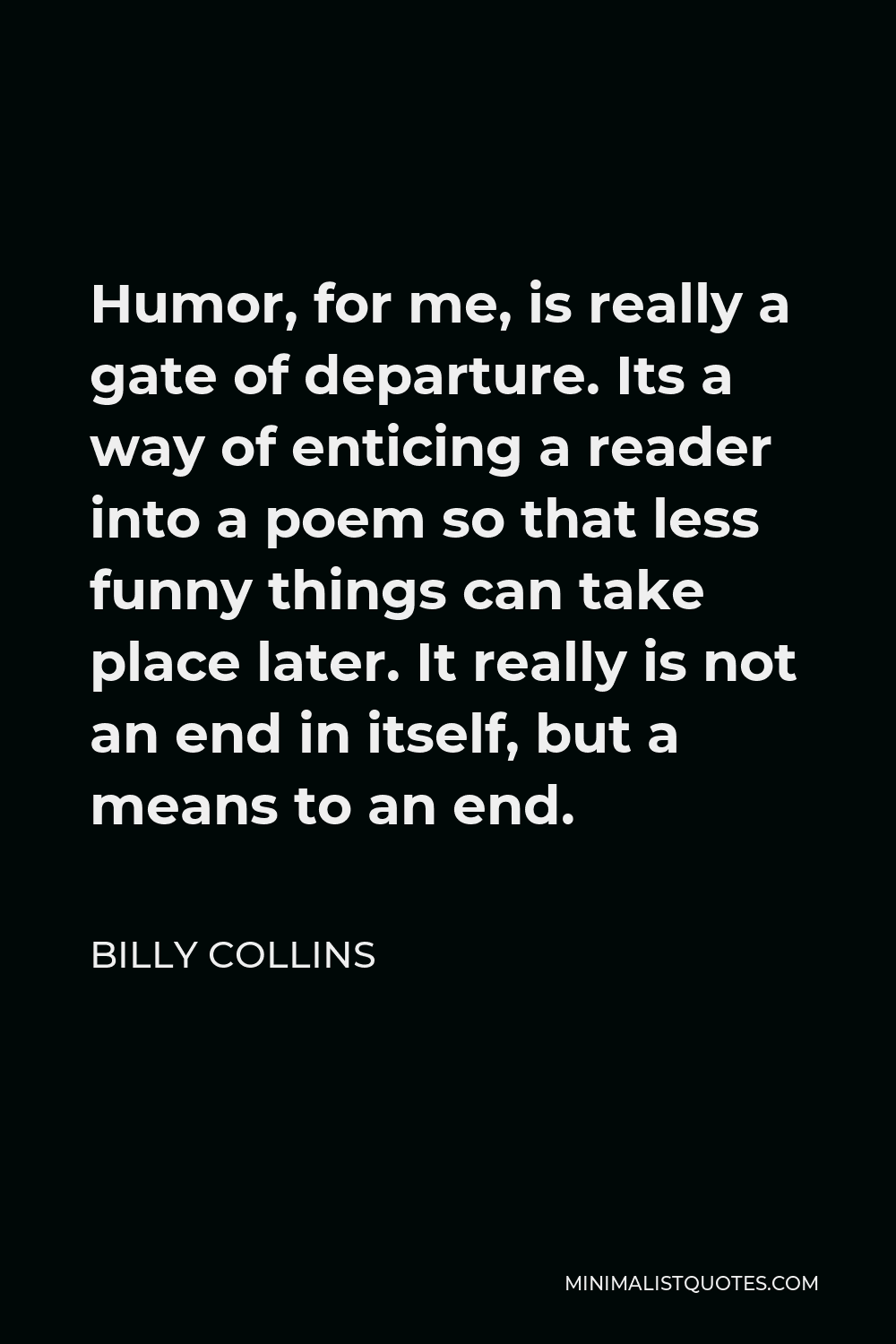
Humor, for me, is really a gate of departure. Its a way of enticing a reader into a poem so that less funny things can take place later. It really is not an end in itself, but a means to an end.
BILLY COLLINS -





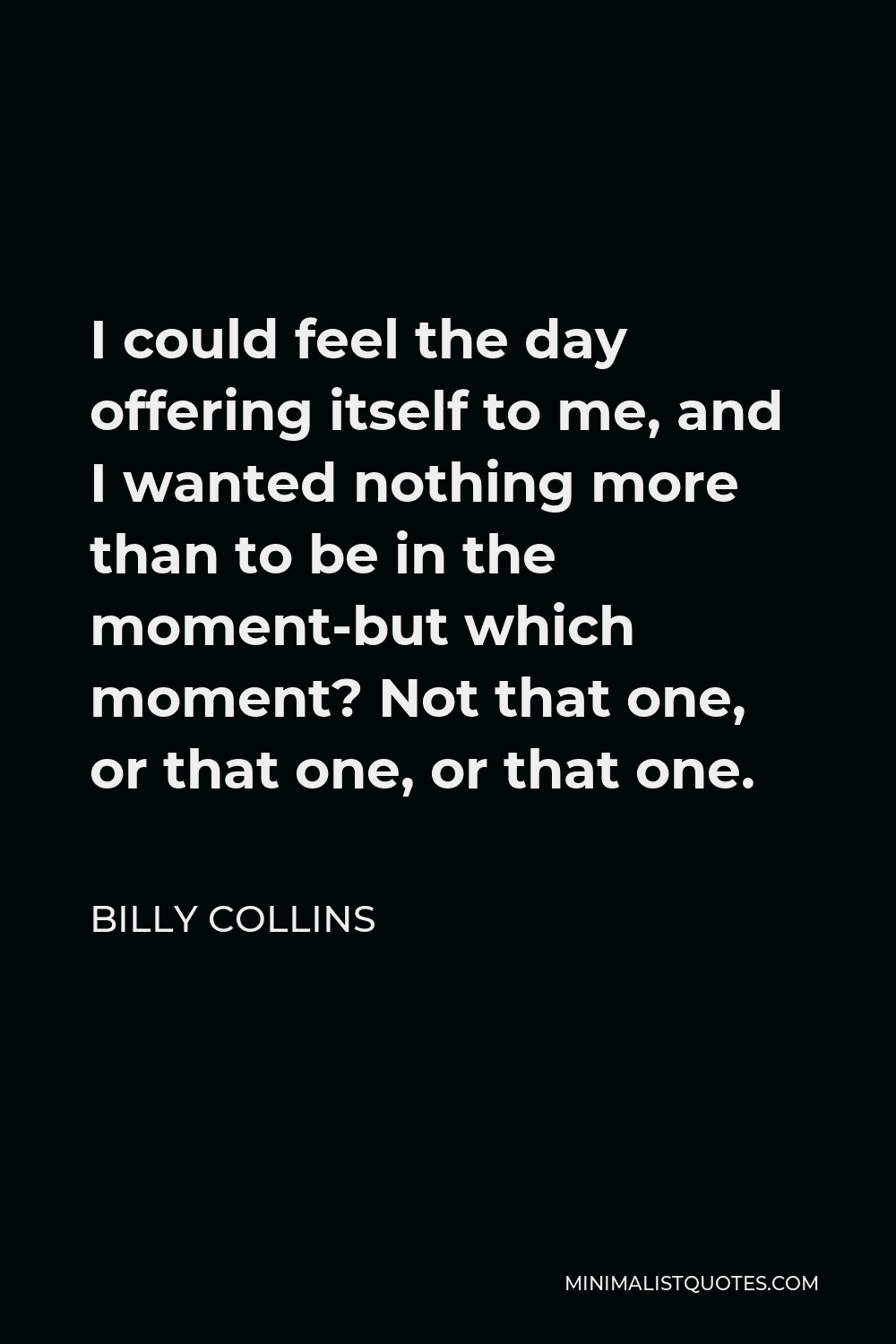
I could feel the day offering itself to me, and I wanted nothing more than to be in the moment-but which moment? Not that one, or that one, or that one.
BILLY COLLINS
